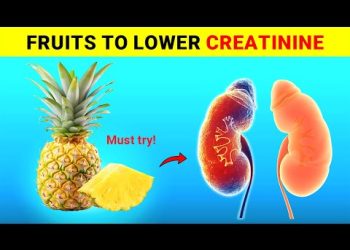Introduction
Hello, Health Champions! Today, we’re diving into the critical signs that suggest your kidneys may be in trouble. Whether it’s through changes in urination or more severe symptoms, understanding these warning signs is essential for your health.
Understanding Kidney Function
Many people simplify the role of the kidneys as just a filter. However, they are much more complex, acting as exchangers that can both excrete and reabsorb substances to maintain the body’s balance in glucose, electrolytes, and pH. When kidneys are compromised, they can lead to various symptoms and systemic issues.
Changes in Urination
The first red flag of potential kidney issues is a change in urination patterns. This might include changes in the frequency, volume, color, or smell of urine. While kidney damage can cause these changes, they can also result from bladder infections.
Hypertension
Early-stage kidney damage can manifest as hypertension due to electrolyte imbalances, especially retaining too much sodium. This can result from insulin resistance, which is a leading cause of kidney disease and failure.
Fatigue
Kidneys play a role in producing erythropoietin (EPO), a hormone that stimulates red blood cell production. If the kidneys are damaged, they may produce less EPO leading to anemia and subsequently causing fatigue due to insufficient oxygen distribution in the body.
Intermediate Stage Kidney Disease
Intermediate stages include further reduced filtration capacity, which can lead to more severe symptoms such as pronounced swelling and edema due to issues in sodium and protein management.
Severe Symptoms and Late-Stage Disease
In later stages, symptoms can include foamy urine due to protein loss, muscle cramps from electrolyte imbalances, metallic taste in the mouth, loss of mental sharpness due to toxins in the blood, ammonia breath, and shortness of breath from fluid retention in the lungs.
Prevention and Early Intervention
Preventing kidney disease starts with addressing insulin resistance and maintaining a healthy diet that minimizes processed foods. Early intervention in stages 1, 2, and 3A may help reverse the condition with lifestyle changes and supplements.
Chronic Kidney Disease Stage Progression
As kidney disease progresses from stages 3B to 4 and beyond, the possibility of reversal diminishes, emphasizing the importance of early detection and treatment. Once in stage 5, dialysis or transplantation may be necessary.
Conclusion
Understanding the warning signs of kidney toxicity is crucial for maintaining your health. Through proper diet, lifestyle changes, and medical supervision, you can manage your risk and support kidney function. Be proactive and stay informed for a healthier life.











